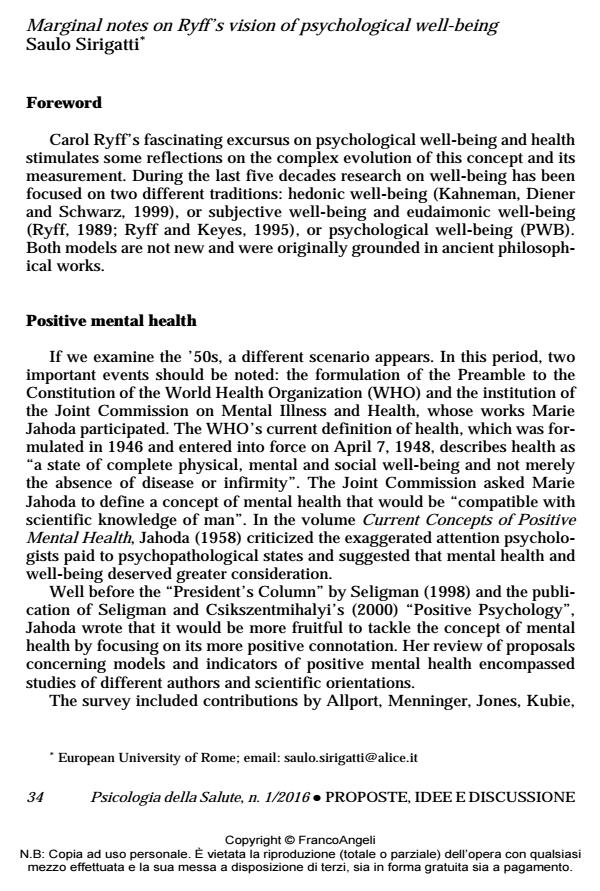Marginal notes on Ryff’s vision of psychological well-being
Titolo Rivista PSICOLOGIA DELLA SALUTE
Autori/Curatori Saulo Sirigatti
Anno di pubblicazione 2016 Fascicolo 2016/1
Lingua Inglese Numero pagine 5 P. 34-38 Dimensione file 38 KB
DOI 10.3280/PDS2016-001004
Il DOI è il codice a barre della proprietà intellettuale: per saperne di più
clicca qui
Qui sotto puoi vedere in anteprima la prima pagina di questo articolo.
Se questo articolo ti interessa, lo puoi acquistare (e scaricare in formato pdf) seguendo le facili indicazioni per acquistare il download credit. Acquista Download Credits per scaricare questo Articolo in formato PDF

FrancoAngeli è membro della Publishers International Linking Association, Inc (PILA), associazione indipendente e non profit per facilitare (attraverso i servizi tecnologici implementati da CrossRef.org) l’accesso degli studiosi ai contenuti digitali nelle pubblicazioni professionali e scientifiche.
Saulo Sirigatti, Marginal notes on Ryff’s vision of psychological well-being in "PSICOLOGIA DELLA SALUTE" 1/2016, pp 34-38, DOI: 10.3280/PDS2016-001004